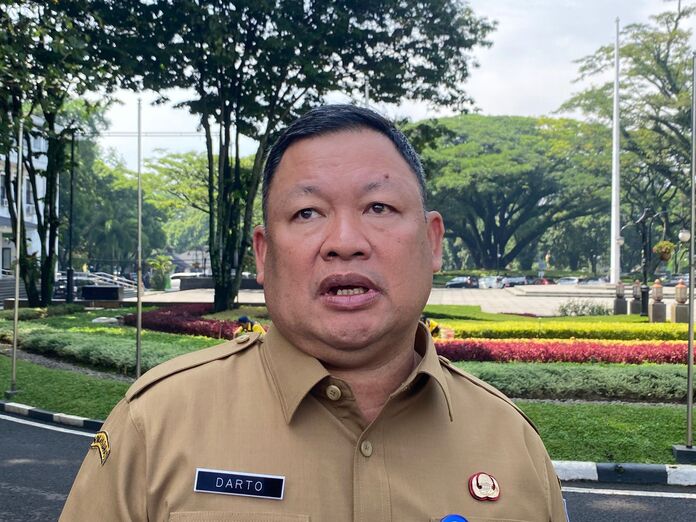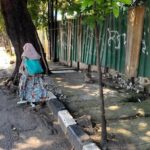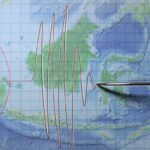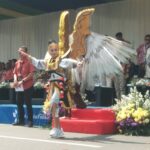The Bandung City Environment Agency confirms that waste cleanup efforts at several waste collection sites are proceeding faster after operational constraints at the Sarimukti Waste Processing Site began to be resolved. The Head of the Agency emphasized that the handling process has now returned to normal and four locations have been successfully cleared.
The four locations where waste piles have been cleared include Gunung Batu Waste Collection Site, Pasar Sederhana, Pasar Gegerkalong, and Karasak Waste Collection Site on Moh Toha Street.
“These four locations have been completed. The last one at Pasar Sederhana was around 11:57 PM, then we immediately continued to Pasar Gegerkalong,” stated the Head of the Agency.
The main issue that had slowed down the transportation process was limited vehicle maneuverability and minimal loading area at Sarimukti.
“Previously, vehicles had difficulty moving and only one loading dock could be used. Now it has reopened for three vehicles, so the transportation flow is much smoother,” explained the Head.
With these constraints beginning to be resolved, the Environment Agency can once again clear the waste piles one by one. The Head targets completion of all waste piles by November 23, 2025 at the latest.
“We request support to ensure we don’t fall behind schedule, as November-December are the busiest months in Bandung City. We don’t want to leave any waste piles remaining,” said the Head.
Regarding the transportation mechanism, the Head conveyed that technical adjustments did occur, including queue management for vehicles at Sarimukti. Weather factors also had an impact.
“During the rainy season, vehicle maneuverability is usually disrupted. Not all areas there are paved yet,” said the Head.
As for service innovations, the Environment Agency remains focused on clearing the waste piles before launching system updates.
“Our current priority is to clean up first. After completion, there will be other technical steps to ensure no large waste piles accumulate post-cleanup. That is currently being developed,” emphasized the Head.
The Head also highlighted the issue of illegal waste dumping that often occurs at waste collection sites located in border areas or along roadsides. The Head believes much of this waste comes from passing community members.
“Almost all border points are like that. We urge residents not to dispose of waste carelessly. Patrols require many personnel, but we continue to do what we can,” said the Head.
The Head cited the success of patrols on Ahmad Yani Street conducted by Public Order Agency. As a result, illegal waste is almost no longer found along that route. However, to implement patrols at all waste collection sites, the Environment Agency must consider personnel availability.
“There are very many points. So we must first calculate our personnel capacity,” said the Head.
The Environment Agency ensures that work continues 24 hours. The Head even reported having just returned from Pasar Gegerkalong around 2:30 AM.
“Four locations have been completed, and the remainder will continue to be pursued,” said the Head.
The Head reaffirmed that through the acceleration that has been ongoing since the beginning of the week, the Environment Agency hopes Bandung can enter the year-end without being burdened again by waste piles at collection sites.
Sarimukti Waste Processing Site
The Sarimukti Waste Processing Site is a modern waste management facility in Bandung, Indonesia, designed to address the city’s significant landfill crisis. It was developed to process municipal solid waste and convert it into refuse-derived fuel (RDF) and compost, representing a shift towards more sustainable waste handling practices in the region.
Gunung Batu Waste Collection Site
Gunung Batu Waste Collection Site is a landfill facility in Indonesia, primarily serving the Bandung area. It gained notoriety in the early 2000s due to a major landslide in 2005 that tragically buried numerous homes and caused over a hundred fatalities, highlighting critical issues of waste management and urban planning. The disaster prompted increased scrutiny of landfill safety regulations and informal settlements near waste disposal sites in Indonesia.
Pasar Sederhana
“Pasar Sederhana” is not a specific, well-known cultural or historical site, but rather a common Indonesian term meaning “Simple Market.” It typically refers to a local, traditional market in Indonesia that sells daily necessities like fresh produce, food, and household goods. These markets have a long history as community hubs for local trade and social interaction, reflecting everyday Indonesian life and commerce.
Pasar Gegerkalong
Pasar Gegerkalong is a traditional market located in Bandung, Indonesia, known for its vibrant atmosphere and wide variety of local goods, particularly fresh produce and traditional Sundanese snacks. Historically, it has served as a central trading hub for the surrounding communities for many decades. The market remains a popular destination for both locals and tourists seeking an authentic cultural and culinary experience.
Karasak Waste Collection Site
The Karasak Waste Collection Site is a modern waste management facility located in Karasak, Kazakhstan. It was developed to address urban waste challenges and has evolved into an integrated site featuring recycling initiatives and environmental monitoring systems. The facility represents a shift toward sustainable waste practices in the region.
Moh Toha Street
Moh Toha Street is a major thoroughfare in Bandung, Indonesia, named after Mohammad Toha, a national hero from the city. It is historically significant as the site of the “Bandung Sea of Fire” in 1946, where Indonesian fighters burned parts of the city, including this area, during the struggle for independence against Dutch forces. Today, it is a bustling commercial and transportation hub.
Ahmad Yani Street
Ahmad Yani Street is a major thoroughfare in Semarang, Central Java, Indonesia. It is named after General Ahmad Yani, a national hero and one of the army generals killed during the 1965 coup attempt that led to the rise of President Suharto. Today, the street is a bustling commercial and business artery in the city.
Bandung City
Bandung is the capital of West Java, Indonesia, famously nicknamed the “Paris of Java” for its European-style art deco architecture, a legacy from its development during the Dutch colonial era in the early 20th century. It gained historical significance as the host of the 1955 Asia-Africa Conference, a pivotal meeting of post-colonial nations that led to the Non-Aligned Movement. Today, the city is a major hub for education, creative industries, and is renowned for its vibrant culinary and shopping scene.






